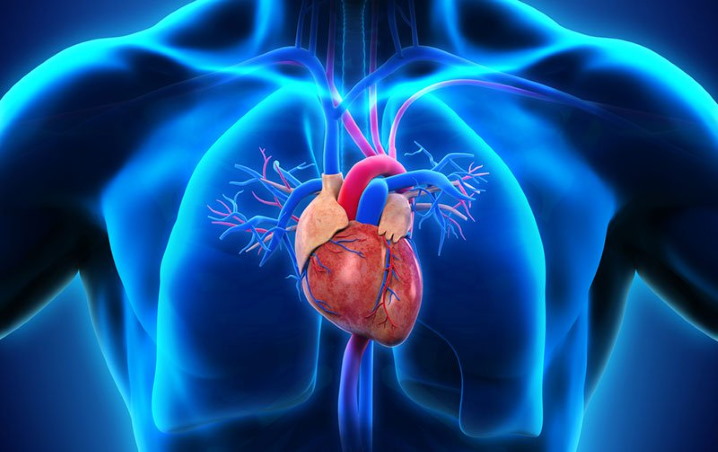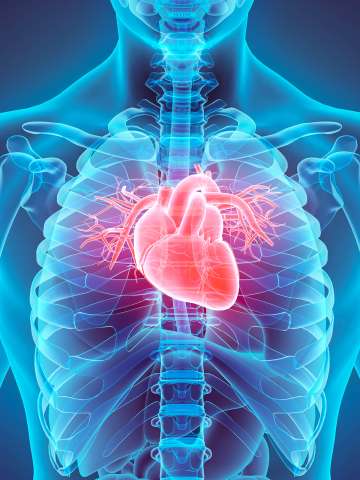How Dr Garcia's office guides you to better cardiovascular care
How Dr Garcia's office guides you to better cardiovascular care
Blog Article
Recognizing the Value of Cardiology in Modern Health Care Services
Cardiology plays a vital function in modern medical care, especially as heart problem remains to be the leading source of death worldwide. Advances in diagnostics and treatment have transformed client treatment, making it possible for earlier treatments and boosted outcomes. The change towards precautionary cardiology empowers individuals to handle their health and wellness proactively. As technology remains to evolve, the combination of cutting-edge services might further redefine cardiology's influence on public wellness, prompting a more detailed exam of emerging fads and their ramifications.
The Frequency of Cardiovascular Disease and Its Effect On Public Health
Although cardiovascular disease stays the leading reason of fatality internationally, its effect extends much beyond specific patients to influence public health systems and economies. The high occurrence of heart problem positions a considerable strain on medical care resources, demanding enhanced financing for rehabilitation, therapy, and avoidance programs. Public wellness campaigns have to resolve danger aspects such as excessive weight, smoking, and sedentary lifestyles, which contribute substantially to the climbing incidence of heart conditions.Moreover, the economic concern associated with cardiovascular disease is enormous, encompassing not only straight medical costs yet also indirect costs associated with shed productivity and premature death. Areas encounter obstacles in managing these expenses, usually resulting in variations in medical care access and outcomes. As the populace ages and lifestyle-related dangers remain to intensify, the necessity for efficient cardiology treatments comes to be paramount. As a result, resolving heart disease is not just a matter of individual health however likewise an important public wellness priority.
Developments in Cardiac Diagnostics and Imaging Techniques
Recent advancements in cardiac diagnostics and imaging strategies have actually transformed the area of cardiology, improving the capacity to keep an eye on and spot heart problem. Techniques such as cardiac MRI, CT angiography, and echocardiography have ended up being increasingly innovative, providing thorough pictures of cardiac frameworks and features. These techniques enable the very early identification of problems like coronary artery illness, cardiac arrest, and valvular disorders.Moreover, improvements in non-invasive diagnostics, such as wearable technology and remote surveillance tools, have encouraged individuals and health care carriers. These devices help with real-time monitoring of heart rhythms and other crucial signs, bring about prompt interventions. Additionally, synthetic knowledge is being incorporated into imaging analysis, boosting accuracy and efficiency in diagnosis.
Developments in Therapy Choices for Heart Conditions
Current developments in cardiology have caused significant technologies in treatment options for heart conditions. These consist of innovative surgical strategies that enhance step-by-step end results and arising drugs that provide brand-new avenues for treatment. As the area evolves, these innovations play an important duty in boosting individual care and end results.
Advanced Surgical Techniques
Advancements in medical methods have actually transformed the landscape of cardiology, supplying new expect clients with heart disease. Minimally invasive procedures, such as catheter-based interventions, have actually substantially reduced healing times and medical facility keeps. Techniques like robotic-assisted surgical treatment enhance precision, enabling surgeons to navigate intricate anatomical structures with higher accuracy. Developments in imaging modern technology assist in real-time visualization during procedures, enhancing end results. Transcatheter aortic valve substitute (TAVR) exhibits an advancement in dealing with aortic stenosis, making it possible for valve substitute without open-heart surgery. Furthermore, hybrid approaches that integrate catheter-based and medical approaches supply tailored options for numerous heart issues. These advanced surgical techniques not just boost patient security yet likewise broaden treatment options, underscoring the important function of technology in contemporary cardiology techniques.
Arising Treatments and medications
As the landscape of cardiology remains to evolve, emerging therapies and medications play a pivotal role in boosting treatment alternatives for heart problems. Developments such as novel anticoagulants and progressed lipid-lowering agents have changed the monitoring of heart diseases, greatly decreasing patient morbidity and mortality. Additionally, the advancement of gene therapies and regenerative medication uses promising opportunities for dealing with conditions previously deemed permanent. Scientific tests are continually disclosing the effectiveness of these therapies, pushing the boundaries of conventional treatments. The combination of electronic health and wellness modern technologies facilitates tailored medication, enabling for customized treatment plans based on genetic and way of living aspects. Jointly, these advancements emphasize the dynamic nature of cardiology, improving client outcomes and redefining criteria of treatment in modern-day medical care.
The Function of Preventive Cardiology in Client Care
Preventive cardiology plays a crucial duty in patient treatment by concentrating on the recognition of threat variables that add to heart problem. Through lifestyle modification techniques and very early discovery techniques, doctor can effectively decrease the incidence of cardio occasions - Cardiology care. This positive approach not just boosts individual end results however also advertises long-term wellness
Danger Variable Identification
While cardiovascular conditions continue to be a leading source of morbidity and mortality worldwide, efficient risk variable recognition serves as a keystone of precautionary cardiology. Identifying threat variables such as high blood pressure, hyperlipidemia, family, and diabetic issues background is important for very early intervention. Healthcare experts utilize different evaluating methods to evaluate these aspects, permitting customized safety nets. In addition, recognizing a patient's way of life selections, such as smoking and physical inactivity, even more informs danger analyses. This detailed analysis makes it possible for clinicians to create personalized care strategies targeted at mitigating dangers. By prioritizing risk factor recognition, health care systems can improve individual results and minimize the overall problem of cardiovascular diseases, eventually adding to enhanced public health techniques and hop over to these guys source allotment.
Way Of Living Alteration Methods
A plethora of studies highlights the crucial role of way of life alteration strategies in decreasing cardio illness danger. These strategies include nutritional adjustments, increased physical task, cigarette smoking cessation, and weight monitoring. By adopting a heart-healthy diet regimen abundant in fruits, vegetables, whole grains, and lean healthy proteins, people can lower cholesterol levels and blood stress. Normal physical task enhances the heart and boosts general cardio wellness. Furthermore, stopping smoking significantly lowers the risk of heart problem and enhances recuperation rates for those with present conditions. Weight administration even more adds to cardio health by mitigating other risk variables such as diabetic issues and hypertension. Executing these way of life changes not only promotes individual well-being but also offers as a keystone of precautionary cardiology in individual treatment.
Early Discovery Methods
Way of living modifications significantly add to decreasing cardiovascular condition risks, but they are most efficient when coupled with early detection techniques. Precautionary cardiology stresses the importance of determining prospective heart problems before they intensify right into serious conditions. Methods such as blood pressure monitoring, cholesterol testing, and progressed imaging technologies like echocardiograms play important functions in reviewing cardiovascular health and wellness. Biomarkers and hereditary testing additionally boost the accuracy of early detection, permitting customized preventive strategies. Regular heart danger analyses encourage healthcare companies to step in proactively, possibly stopping cardiac arrest and strokes (Dr Garcia). By incorporating these early discovery techniques right into regular care, individuals can take advantage of prompt way of life treatments and targeted therapies, ultimately boosting and enhancing results high quality of life
Integrating Modern Technology Into Cardiology Practices
As developments in innovation remain to improve various areas, the assimilation of innovative tools and systems into cardiology methods has actually ended up being vital for improving patient treatment and outcomes. Telemedicine platforms allow cardiologists to monitor patients from another location, enhancing access to care while minimizing the problem on medical care facilities. Wearable gadgets, such as smartwatches, enable continual heart price monitoring, notifying both doctors and patients to potential problems in real-time. Furthermore, artificial intelligence (AI) is being made use of to examine substantial amounts of cardiac data, aiding in very early medical diagnosis and customized therapy plans. Advanced imaging methods, including 3D echocardiography, boost visualization of heart structures, bring about a lot more exact treatments. Electronic health documents (EHRs) improve individual info administration, making certain that cardiologists have prompt accessibility to vital information. Together, these technical advancements are changing cardiology, advertising aggressive management and boosted health end results for clients with cardiovascular conditions.
The Importance of Person Education and Involvement
Person education and engagement play a crucial duty in the monitoring of cardiovascular health and wellness. By equipping patients with understanding concerning their conditions, therapy options, and lifestyle changes, doctor empower people to take an energetic duty in their treatment. This aggressive strategy can lead to enhanced adherence to recommended medicines, nutritional adjustments, and workout routines, inevitably decreasing the risk of complications.Engagement also fosters a strong patient-provider connection, urging open interaction and trust. When people really feel informed and entailed, they are more probable to voice concerns and ask questions, which can cause far better scientific outcomes. Additionally, educational sources, such as workshops or digital systems, can boost understanding and advertise self-management methods. Overall, focusing on patient education and learning and involvement is vital for enhancing cardio wellness, improving high quality of life, and reducing healthcare expenses connected with cardiovascular conditions.
Future Trends in Cardiology and Their Possible Influence

Regularly Asked Concerns
What Way Of Life Modifications Can Lower Cardiovascular Disease Danger?
The present inquiry addresses lifestyle modifications that can considerably minimize heart disease danger. Dr Garcia. Embracing a well balanced diet regimen, participating in regular exercise, maintaining a healthy weight, handling stress and anxiety, and avoiding cigarette can notably improve cardiovascular health
Just How Can I Acknowledge Early Indications of Heart Issues?
Recognizing very early signs of heart issues entails monitoring signs and symptoms such as upper body pain, shortness of breath, exhaustion, and uneven heartbeat. Prompt recognition of these signs can motivate needed clinical evaluation and treatment for far better outcomes.
What Are the Distinctions Between Cardiologists and Cardiac Surgeons?
The differences between cardiologists and heart surgeons hinge on their roles; cardiologists primarily diagnose and handle heart conditions with non-invasive approaches, while cardiac doctors perform surgeries to remedy structural heart problems. Each plays an essential, distinctive duty.

How Often Should I Obtain My Heart Health And Wellness Checked?
The frequency of heart medical examination varies based upon specific danger elements. Usually, adults ought to undergo examinations every one to two years, while those with status quo may call for even more frequent evaluations as recommended by health care specialists.
What Duty Does Genetics Play in Heart Problem Threat?
Genes significantly influences heart problem risk, with domestic patterns showing acquired problems. Details genetics can incline people to high blood pressure, cholesterol issues, and other cardio troubles, highlighting the relevance of genetic screening in evaluating heart health. Heart illness remains the leading reason of death globally, its influence extends much past specific clients to influence public wellness systems and economic climates. Public health initiatives have to deal with danger factors such as excessive weight, smoking cigarettes, and sedentary way of livings, which contribute substantially to the rising occurrence of heart conditions.Moreover, the financial concern linked with heart disease is tremendous, encompassing not just direct medical expenses yet also indirect expenditures related to shed efficiency and premature death. Precautionary cardiology plays a vital function in person care by focusing on the recognition of danger aspects that contribute to heart disease. Synthetic intelligence (AI) and maker understanding are boosting diagnostics and client monitoring, allowing early discovery of heart illness. The distinctions in between cardiologists and heart doctors lie in their duties; cardiologists mostly handle and detect heart conditions through non-invasive methods, while heart doctors carry out medical procedures to correct structural heart problems.
Report this page